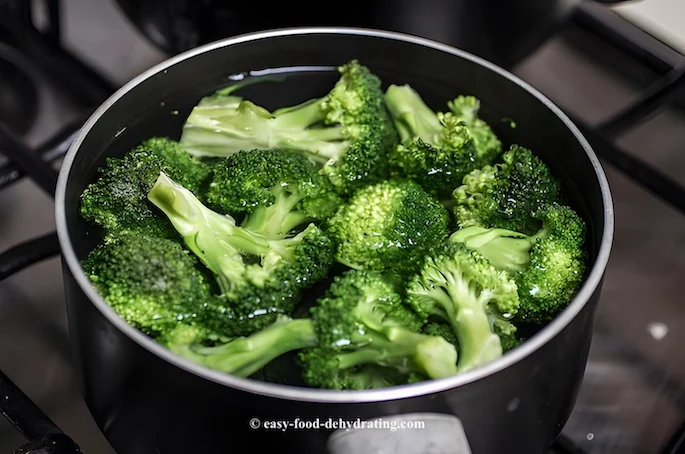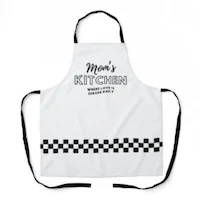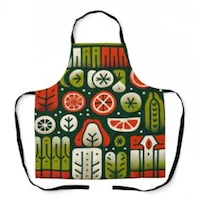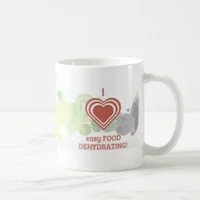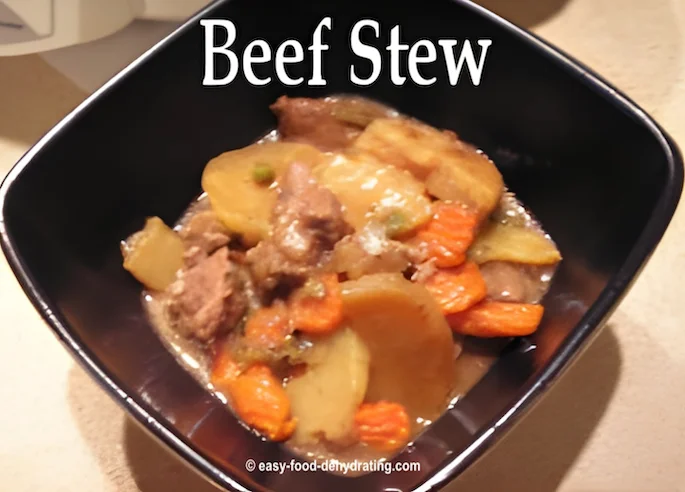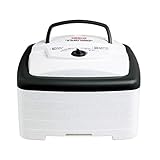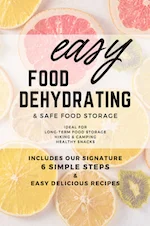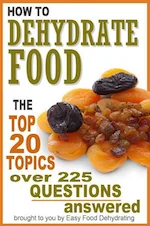whatever the reason or season!
- Home
- Why Blanch Vegetables Before Dehydrating
Why Blanch Vegetables
Before Dehydrating?
Regarding the question, "Why blanch vegetables before dehydrating?" here's the answer. It's an important step for certain vegetables before dehydrating them - and for a few good reasons:
Why Blanch Vegetables Before Dehydrating? Here are Three Good Reasons
Why Blanch Vegetables
Before Dehydrating?
Here are Three
Good Reasons
1: It’s important that we slow down the food-spoiling process and that's caused by the enzymes in the vegetables. Blanching helps to stop the enzymatic process, causing our food to spoil. Blanching helps to preserve the flavor, and the nutrients of the vegetables.
2: Blanching aids in the actual food dehydrating process. I’ll go more into that shortly on this page.
3: Blanching makes it easier to peel and remove the skin from the vegetables.
TOP Frequently Asked Questions:
Blanching blueberries?
Blanching blueberries?
Yes, you need to blanch blueberries (and most berries) so that their skins get tiny cracks. This speeds up the dehydrating process and helps prevent case hardening. That means the crusting of the exterior which leaves the interior moist, which is a no-no.
Case hardening can fool us into thinking the food is dry, when in fact, the middles are not dry enough.
Why blanch food?
Why blanch food?
Key reasons for blanching many fruits, or vegetables before dehydrating them:
- Inactivates Enzymes - Blanching helps halt the action of enzymes that cause undesirable ripening during drying.
- Cleans the Surface - The hot water loosens dirt and debris to give produce a thorough surface clean before dehydrating - including wax residues.
- Precooks Slightly - Softening fibers through a brief hot water dip lets the moisture get out better when dehydrating. Our food dries faster and lessens the chance of case hardening mentioned in the blueberry FAQ.
- Improves Appearance - For vibrant foods like carrots, blanching locks in their bright colors before drying.
So in short—blanching extends the shelf life of dehydrated products as water content gets removed during the full dehydration process faster though the cracks of the skin/food..
Mother's Day Specials!
Blanching Keeps Vegetable Colors Vibrant
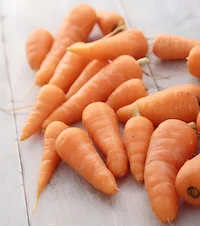
As stated in the FAQ section at the top of the page (go read 'em!) another reason we blanch vegetables before dehydrating is that blanching helps keep the beautiful color of your vegetables.
Your zucchini and broccoli will remain bright green! Your carrots will remain a vivid orange! You get the picture.
Blanching also helps retain flavor.
What IS Blanching?
Blanching simply means dipping foods into small amounts of boiling water for a short time.
Remember, we're not cooking the food here—so a "short time" really only means less than a minute!
Blanching Cracks Skins!
That's Why We Blanch Vegetables Before Dehydrating...
Blanching Cracks Skins!
That's Why We Blanch
Vegetables Before
Dehydrating...
For vegetables that have relatively thick skins (that we want to keep/eat), blanching creates tiny cracks in the skins.
These tiny surface cracks help dehydration to occur
at a much deeper penetration level that’s more
than just surface-skin deep.
These tiny surface cracks help dehydration to occur at a much deeper penetration level that’s more than just surface-skin deep.
Make Sure Vegetables are Dried to the Core...
For proper long-term storage, you must make sure the food you dehydrate has been “dried to the core,” if you will.
Why? You don’t want to end up with moist centers! A moist center will create a breeding ground for mold. And sometimes moist centers are simply NOT visible in large pieces of vegetables with thick skins.
Go and read the 'blueberry' FAQ where case hardening is explained.
Of course, we can ease that problem by cutting our vegetables into similar-sized strips before dehydrating.
Don't Forget: After Dehydrating Use Oxygen Absorbers
We've spent time drying our foods, so don't forget to add an oxygen absorber inside the food vacuum sealer bags before drawing out the air and sealin' it up!
Oxygen Absorbers at Amazon
- PackFreshUSA Oxygen Absorbers
- 200-Pack
- Food-Grade, Non-Toxic
- Oxy-Sorb Oxygen Absorbers
- 100-Pack
- Long-Term Food Storage Freshness Protection
- Oxy-Sorb Oxygen Absorbers
- Bags of 20 (60 Count total)
- Super Effective for Dried Goods
- Oxy-Sorb Oxygen Absorbers
- Pack of 10
- I use these for airtight bins and buckets
*As an Amazon Associate, I earn from qualifying purchases with no price increase to you. Read disclosure here.
Make sure to add an oxygen absorber to your dehydrated food packages BEFORE vacuum-sealing.
Oxygen absorbers do what their name implies: they absorb oxygen. They help inhibit mold growth - an essential factor for long-term food storage!
Learn ALL Six Steps For Free!
If you’re just starting out on your food-dehydrating journey, make sure you get our free eBook, “Six Simple Steps.” It takes you through the six necessary steps to dehydrate food safely at home.
Look, before the next big thing comes down the pike, akin to COVID-19—Ebola, or Poxes—and the like, make sure your food pantry is full. Avoid a dismal shopping experience, staring at those empty sorry-looking shelves at the grocery store.
Take a Look at This!
Take a deeper dive into mastering food dehydration and storage. Check out our ultimate guide - Easy Food Dehydrating & Safe Food Storage.
This comprehensive book is available in multiple formats - eBook, paperback, and audiobook - so you can learn in the way that suits you best.
Inside Easy Food Dehydrating & Safe Food Storage, I cover all aspects of dehydrating fruits, vegetables, meats.
Get all the details on pretreatment, testing for doneness, storage times, best practices for vacuum sealing, using oxygen absorbers, and ideal storage containers and conditions.
I even include recipes for making tasty meals, snacks, and desserts from your dehydrated foods.
Whether you're a total beginner or a seasoned pro, Easy Food Dehydrating & Safe Food Storage takes your skills to the next level. You'll save money, reduce waste, and enjoy nutritious homemade dried foods all year long... whatever the reason or season!
Thanks for stopping by to read "Why blanch vegetables before dehydrating." Blanching is an important step for many vegetables AND fruits such as berries and now you know why!
REMEMBER:
Invest in your food self-sufficiency and pantry stocking today by getting Susan's Easy Food Dehydrating & Safe Food Storage in your preferred format on Amazon.com now!
